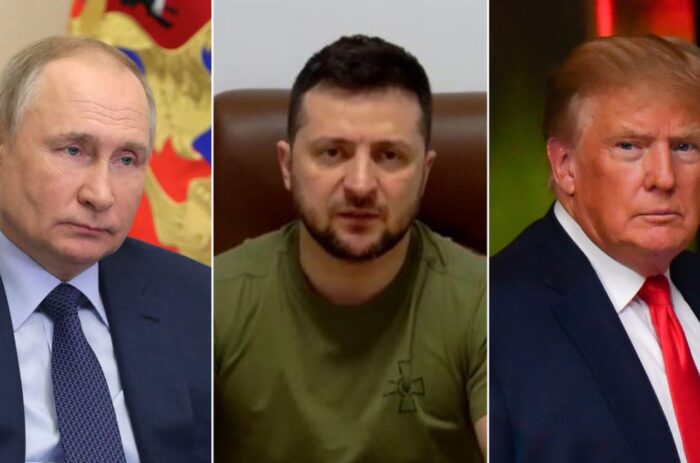redo Jump to...
print Print...
(by Clifford D. May, Townhall.com) – In 1956, Nikita Khrushchev addressed a closed session of the 20th Congress of the Soviet Communist Party. For nearly four hours, he spoke about the unspeakable: the crimes of his predecessor, Soviet dictator Joseph Stalin.
Though listeners were warned not to reveal what was said, and the speech would not be published for 32 years, word leaked out. The most widely told story, probably apocryphal, had it that as Khrushchev was detailing the mass arrests, torture and executions carried out within the Gulag, someone in the audience shouted: “And what were you doing then?”
“Who said that?” Khrushchev demanded. No one made a sound. “I want to know who said that!” he repeated, slamming a fist on the lectern. The audience was silent, trembling in fear. “That’s right,” Khrushchev said finally. “That’s exactly what I was doing.”
I am reminded of this story not only because this year is the 50th anniversary of Khrushchev’s “secret speech,” but also because it may provide at least a partial answer to the question: Where are all the Muslim moderates? Where are those who oppose terrorism, religious wars, hatred and intolerance? Where are those who think it crazy to attempt to recreate the 8th century in the 21st century? Where are those who want not to destroy the Free World but to join it?
They are out there, I suspect; in larger numbers than we might be led to believe. But if most are silent and fearful of speaking out, can you blame them? The vast majority of Arabs and Muslims live in countries ruled by illiberal and oppressive regimes. And in the few relatively free countries – Bangladesh, Malaysia, Indonesia – there is no protection from the long arm of Militant Islamism. Indeed, even in Europe it can be dangerous to challenge religious fascism. And last year, Shaker Elsayed, leader of Dar al-Hijrah, one of the largest mosques in the U.S., told American Muslims: “The call to reform Islam is an alien call.”
Muslims who dissent from this orthodoxy have received precious little support from anyone. As far back as 1989, Iranian Ayatollah Khomeini called for the murder of British author Salman Rushdie. Such a frontal attack on freedom of speech should have prompted Western governments to send Iranian diplomats packing. Instead, Rushdie went into hiding while most Western intellectuals persuaded themselves this quarrel was none of their business.
Since that time, and perhaps partly as a consequence, Dutch filmmaker Theo Van Gogh was murdered for making a movie some Muslims found insulting. Danish journalists who dared publish cartoons satirizing the radicalization of Islam have been threatened. Such formerly-courageous publications as The New York Times declined to publish the cartoons, claiming – unconvincingly — that they had not been intimidated; they were merely demonstrating sensitivity.
Meanwhile, in Jordan and Yemen, editors who thought their readers deserved to judge the cartoons for themselves were jailed.
The pandering has escalated: Last month, Columbia University held a conference that included as a “highlight” a video of Libyan dictator Mu’ammar al-Qaddafi presenting “his views on the prospects for democracy in the twenty-first century.” Columbia’s teachers and administrators are apparently untroubled by the fact that Libya’s leading dissident, Fathi Eljami, is currently rotting in one of Qaddafi’s dungeons.
And in Tunisia, democracy advocate Neila Charchour Hachicha is under police surveillance — her phone and internet connections severed, her car confiscated, her daughter threatened and her husband in prison. What did she do to deserve such punishment? It’s not clear, but she did give an interview to Middle East Quarterly (meforum.org/article/732) about impediments to reform in Tunisia and she spoke at the “neo-con” American Enterprise Institute about the need for democracy in the Middle East.
The routine imprisonment and torture of dissidents in Iran, Syria and Saudi Arabia almost never prompts UN officials to consider interfering — or even criticizing. Once in a while, a Western diplomat expresses concern.
“I keep hearing, ‘Why are liberals silent?'” Said al-Ashmawy, an Egyptian judge and author, recently said. “How can we write? Who is going to protect me?”
If we in the West ever want to have allies in Arab and Muslim countries, we’ll need to start supporting moderates — and stop empowering their oppressors. Most immediately, it would be useful if American ambassadors in Muslim countries would welcome dissidents to their offices as they do cabinet ministers. And perhaps Columbia University President Lee Bollinger – whose “primary teaching and scholarly interests are focused on free speech and First Amendment issues” — might recognize how his institution has been compromised and at least express concern.
Clifford D. May, a former New York Times foreign correspondent, is the president of the Foundation for Defense of Democracies, a policy institute focusing on terrorism.
Posted at Townhall.com on April 7, 2006. Reprinted here with permission from Townhall.com and Cliff May. Visit the websites at Townhall.com and DefendDemocracy.org.
Questions
1. Re-read paragraphs 1-3. What point was Khrushchev trying to make as he answered the question about what he was doing during Stalin’s reign of terror?
2. How does Cliff May link Khrushchev’s story to his own question “Where are the Muslim moderates?”
3. List the reasons Cliff May gives for why most Muslims are silent and fearful of speaking out against Islamist terrorists.
4. List the three examples Mr. May gives to show what has happened to people who publicly criticized Islam. (paragraphs 6-7)
5. List the solutions Mr. May offers for how we can gain allies in Arab and Muslim countries.
6. Do you agree with Mr. May’s assertion about Muslim moderates and how we can help them? Explain your answer.

